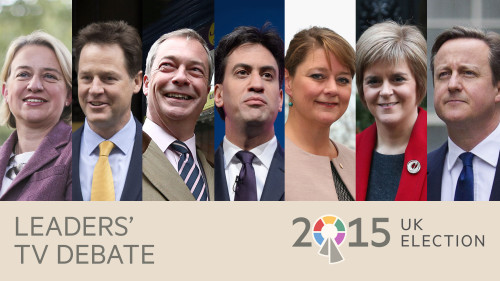Originally published in India’s Sunday Guardian:
I do not know who will “win” the May 7 Parliamentary elections in Britain. I do know that — 30 years after I moved here from the US — politics have fundamentally changed in my adopted country.
The issues that are being discussed in this five-week campaign are important: the state and future of the National Health Service, the economy, immigration, education, social services, Britain’s relationship to Europe. It is also notable which issues are not being discussed: almost anything to do with foreign and defense policy, including crises in Eastern Europe and the Middle East and — curiously, given the important shift that I am about to describe — a system of proportional representation for future elections.
However, developments on all these issues are likely to rest on a fundamental change: the structure of British politics has changed, and it may never return to a system that had reigned for almost 200 years.
The coalition Government formed by the Conservatives and Liberal Democrats after the 2010 election was the first in Britain since 1945 — and the first since 1855 outside of the crises of World War and the Great Depression. At the time, the press and most analysts saw this as a marker of a three-party system, with the Liberal Democrats breaking through the near-monopoly on power swapped between Conservative and Labour.
But now that shift seems quite limited. In 2015, no less than five parties could have a say in the formation of the next Government, with the United Kingdom Independence Party and the Scottish Nationalist Party surging for different reasons. The Green Party and Plaid Cymru, the Welsh nationalist party, have also had unprecedented exposure. Beyond this is the special, often overlooked case of the Northern Irish parties, including the Ulster Unionists, the Democratic Unionists, and Sinn Fein.
The certainty is that, after protracted discussions following May 7, Britain will have its second coalition government since World War II. The nature of that Government, however, is far less predictable than the Conservative-Liberal Democrat uneasy alliance in 2010. Will the Conservatives have to turn to the anti-immigration, anti-Europe United Kingdom Independence Party? Will Labour have to work with the Scottish Nationalist Party, only eight months after a referendum failed to bring Scottish independence?
Consider the scale of the change: only 25 years ago, Margaret Thatcher became the longest-serving Prime Minister in a continuous period in office, leading Conservative rule from 1979 to 1990. In 2007, Labour’s Tony Blair almost matched that record. Now, if the Conservative David Cameron gets a second term, he will do so only after another power-sharing arrangement.
This is unlikely to mark the introduction of a series of short-term Governments, as has happened with other experiences of coalitions in Europe. Defying many expectations, the Conservatives and Liberal Democrats served out a full five-year term, and the priority placed on stability in British politics may mean that even a Conservative-UKIP or Labour-SNP Government would choose compromise rather than dissolution at the first sign of conflict.
That stability of coalition has rested on the paradox that, even with the spread of parties, there has been remarkably little difference between Conservative, Liberal Democrat, and Labour on core issues such as the economy and immigration. For all their surface posturing, all are just tinkering with the post-Thatcher system that promoted the private sector. All will sound vigilant on making sure “illegal” immigrants do not make it to British sources, without addressing the wider, more important issue of changes because of the expansion of the European Union. There is some divergence on operation of the National Health Service, but the Conservatives will not go as far as to turn their backs on the post-1948 principle of free access to basic care.
Still, Coalition 2015 may shake up this effective consensus by forcing the long-established parties to confront certain questions.
In the event of a strong UKIP showing, the never-ending British identity crisis about “Europe” may finally be tested in a referendum over membership of the European Union. The poison of the rhetoric over immigration may either be removed or made more toxic by Government moves to restrict movement of labor.
If the SNP fulfill the expectations of their polling numbers, taking almost all seats in Scotland, then “England” will again confront its uneasy political co-existence with “Scotland”. Significantly, that co-existence will be tested beyond borders by the SNP’s stances — by far, more progressive than those of the Conservatives, Labor, and Liberal Democrats — on health care, education, and social services.
No doubt thousands will loudly sing “Rule Britannia” on the Last Night of the Proms, as they have done since 1947. However, they will do so in a Britannia which is disappearing, its rule no longer resting on the edifices of a single-party, Labor or Conservative Government.






